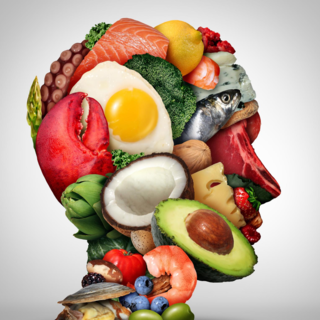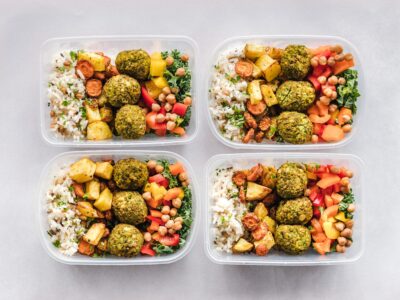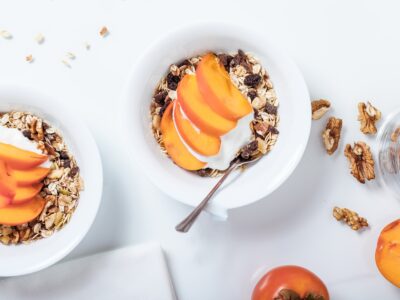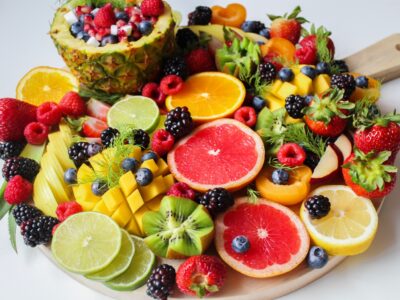You probably know how much of an impact your diet can have on your physical health.
Did you also know it can affect your mood?
There’s a growing body of research linking food and mood. The relationship is complex, but nutrition plays a crucial role in preventing and managing mental health conditions, including depression and anxiety.
One of the factors is the link between nutrition and broader health. According to studies, depression may be linked to high levels of inflammation.
It’s thought that your gut bacteria may have a role to play too. Gut bacteria can help reduce inflammation in the body (or the opposite, in many cases!). The gut also strongly affects mental wellbeing via the gut-brain axis. The brain and the gut communicate closely with each other, which is why you’ll often experience digestive issues during stressful times. Both inflammation and gut health can be at least partly controlled by
nutrition and lifestyle.
Using nutrition to reduce inflammation and keep your gut healthy can be
super important for your mental wellbeing. It’s definitely a case of “you are
what you eat”!
What to Eat For Your Mental Health
A healthy diet is vital when it comes to mental health. Crucially, it’s smart to focus on anti-inflammatory foods that can reduce levels of inflammation and support gut health. Studies have backed this up. Eating plenty of fruits, vegetables, whole grains, fish, olive oil and low-fat dairy have shown great potential for improving symptoms of existing depression or reducing the risk of developing symptoms.
Protein is another important factor. It contains amino acids, which help your brain regulate thoughts, feelings and emotions. Load up on lean meat, fish, eggs, cheese, beans, lentils, nuts, seeds and soy products to get more protein in your diet.
Vegetables
Vegetables are anti-inflammatory but that’s not the only benefit for mood. Studies have indicated that many people who struggle with depression also have low levels of folate. Leafy green vegetables are rich in folate, along with peas.
Fruits
Many fruits are rich in antioxidants and polyphenols, which can protect your brain from the damaging effects of harmful free radicals. Blueberries are often linked to brain health for this reason. Making sure you have a wide range of colourful fruits in your diet is a great way to increase the antioxidants and polyphenols, especially if you’re also eating other brain-friendly foods every day.
Fish
Oily fish are a great source of omega-3 fatty acids, which are anti-inflammatory and important for a healthy brain. A study published in The Journal of Epidemiology and Community Health found that eating fish regularly was linked to lower rates of depression. Oysters can help too.
They’re a great source of zinc, which may be able to ward off depression symptoms.
Nuts
Nuts are another fantastic source of omega-3 fatty acids, especially walnuts. Studies have suggested that eating ¼ cup of walnuts every day can reduce depression scores by just over 25%.
Seeds
Seeds are also packed with omega-3 fatty acids. Just one spoonful of chia seeds provides 61% of the recommended daily intake of omega-3.
Poultry
Chicken and turkey are sources of tryptophan, which helps create serotonin. This is crucial for regulating your mood so it’s definitely something you’ll want to eat regularly. Other good sources of tryptophan include oats, nuts, seeds, tuna, whole milk, and banana. As a bonus, tryptophan-rich foods can help you to sleep better.
Probiotic foods
Fermented foods such as sauerkraut, kimchi and tempeh are gut-healthy and are thought to play a key role in balancing mood.
What Not to Eat
It’s also important to think about what shouldn’t be a big part of your day-to-day nutrition. Eating a lot of sugar, high-fat dairy, red meat, processed meat and refined grains has been linked to a higher risk of depression – especially if you don’t eat many vegetables or fruits too. As a general rule of thumb, whole foods are a much better bet than processed foods.
Caffeine is another potential problem. After the initial burst of energy, you’ll usually experience a big energy crash. This can make you feel anxious and can worsen symptoms of depression.





